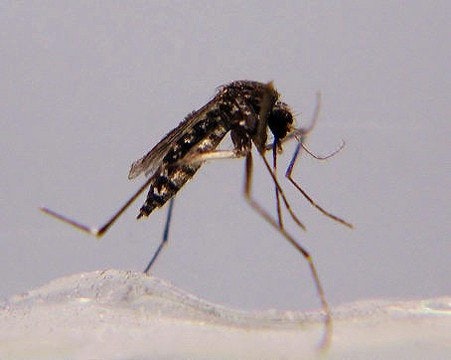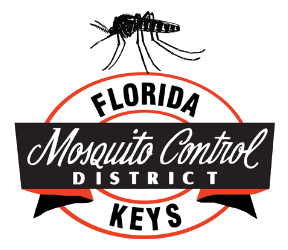FKMCD Saltmarsh Mosquito Public Educational Meetings
The Florida Keys are home to more than 50 species of mosquitoes, but Aedes taeniorhynchus, commonly known as the Black Saltmarsh Mosquito, is by far the most common.

During summer months, these mosquitoes can emerge in large numbers from the extensive mangroves and wetlands of the Florida Keys .
In the summer of 2025, populations have been especially high. Mosquito traps monitored by the Florida Keys Mosquito Control District (FKMCD) have consistently captured four to five times more saltmarsh mosquitoes than in previous years.
Several factors have contributed to this increase, including:
- Weather patterns (rainfall, wind, and tides)
- Newly identified mosquito production sites
- High numbers of larvae in these habitats

The end result has been an extremely active season for residents and mosquito control professionals alike.
To help address public questions and concerns about the increased activity, FKMCD Commissioners and Staff held a series of Saltmarsh Mosquito Public Educational Meetings in September of 2025.
Click on the link below to view the presentation that was given at each of the educational sessions:
2025_09_15_SaltmarshEducationalSession_UKed.pdf
Asking the Experts
During the three FKMCD Saltmarsh Mosquito Public Educational sessions, a panel of experts including FKMCD's Executive Director, Andrea Leal; Director of Operations, Mikki Coss; and Director of Research, Dr. Larry Hribar, answered questions about the recent uptick in saltmarsh mosquito numbers and steps being taken to manage them.

Below is a compiled synopsis of the 'Frequently Asked Questions' that were addressed at the three educational sessions:

Q: Why have we not seen as many spray trucks as we have in previous years?
A: Many of the spray trucks utilized by FKMCD are now electric and do NOT make the same, familiar noise as previous trucks.
Q: We still see a lot of mosquitoes, how do you know your products are working?
A: All products used by FKMCD are routinely tested to make sure they are still effective. All adulticide products (pesticides) must come in direct contact with the mosquito in order to have the desired effect, which is challenging in certain locations where there are 'no spray' areas.
Q: Does the FKMCD-Oxitec mosquito project have anything to do with the current influx of saltmarsh mosquitoes?
A: No. FKMCD-Oxitec project targeted and utilized specialized Aedes aegypti male mosquitoes in urban areas, as opposed to the saltmarsh mosquito, Aedes taeniorhynchus, that favor and reproduce in natural habitats such as mangroves and wetlands. The releases associated with the FKMCD-Oxitec project concluded in 2023.
Q: Why doesn't FKMCD utilize airplanes any longer?
A: FKMCD has been transitioning to an all helicopter fleet for several years now and recently sold its last airplane. Helicopters can cover as much ground as airplanes and offer mission flexibility between granular and liquid payloads that airplanes could not provide.
((Additional FAQ's from other sesssions are being compiled and will be added soon.))



